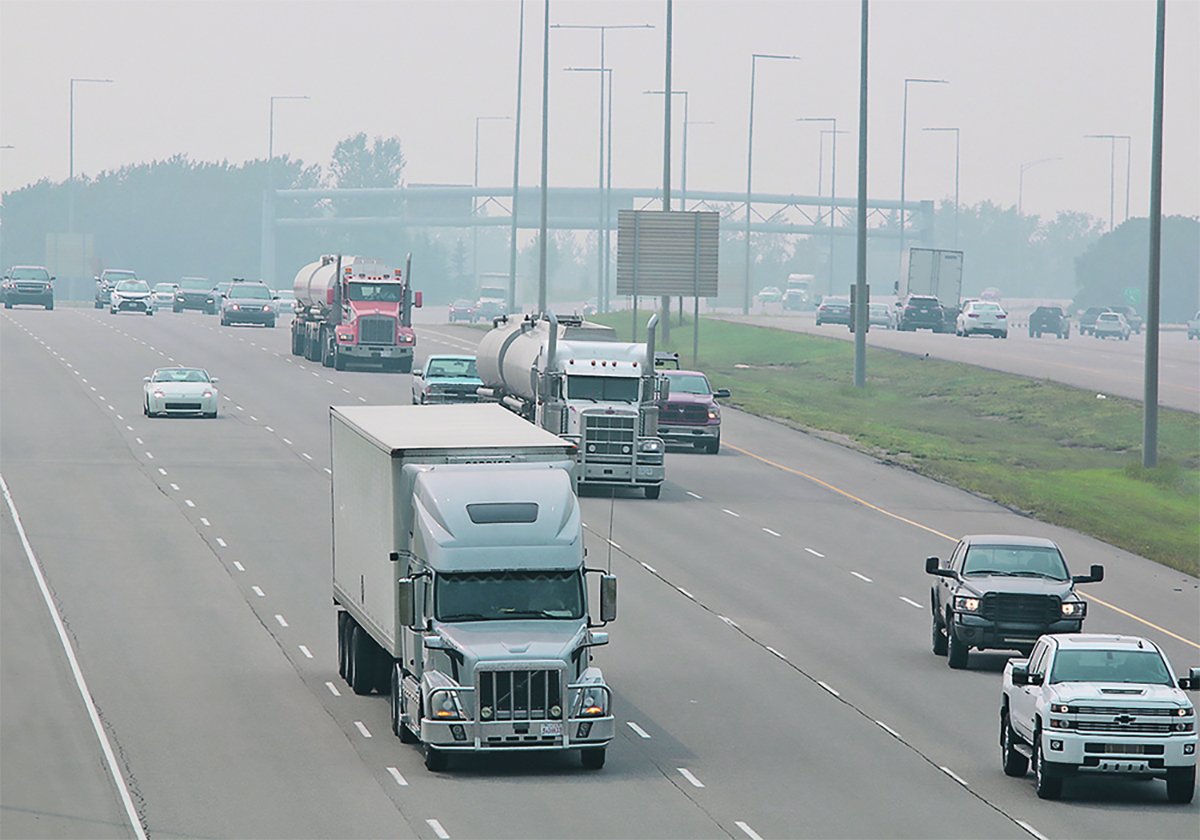Q: I bought some hay from a farmer several hundred kilometres away. A
few weeks later it was delivered. There were fewer bales than I bought.
When I contacted the vendor, he told me he loaded what I bought and if
there was hay missing, the problem was with the trucker. Perhaps, he
had lost some bales or even taken some, the vendor suggested. The
trucker denies that any hay was lost when he hauled it and that he
Read Also

Alberta cracks down on trucking industry
Alberta transportation industry receives numerous sanctions and suspensions after crackdown investigation resulting from numerous bridge strikes and concerned calls and letters from concerned citizens
delivered exactly what the vendor loaded on the truck. I feel like I’m
caught between a rock and a hard place.
A: You are indeed caught. Let me give you some pointers that might help
you understand the situation.
First, we have to determine the terms of the contract with the vendor.
Did the price of the hay include the trucking costs and was the vendor
responsible for having the hay delivered to you? If that is the case,
the vendor is responsible to you for non-delivery of the promised hay
and is responsible even if the hay was lost due to the trucker’s fault.
The vendor would have to pay you. If the vendor had a problem with the
trucker, that would be a matter between the vendor and trucker. The
vendor could seek damages from the trucker.
The onus would be on you to prove that the contract included the cost
of hauling and that the vendor was responsible for the trucking
arrangements. Unless you have a written contract, this may be difficult
to show. How do you prove the terms of a spoken contract?
An independent witness who heard the discussion could testify that the
vendor was looking after and paying for trucking arrangements.
Second, you could produce a cancelled cheque on which you had endorsed
“for 50 bales and trucking.” You might be questioned as to whether this
endorsement was made at the time the cheque was written.
Finally, you could try to prove the custom or standard practice in the
area is to include shipping costs with the cost of the hay. Proving
this would involve calling farm operators who have bought and sold hay
stating that the vendor is responsible for trucking costs and
arrangements. I suspect this would be difficult to prove. My
understanding is that the buyer usually looks after trucking.
The situation is different if you hired the trucker. In such a
situation, the first question that will have to be determined is who is
responsible for the loss? Was the trucker at fault or did the vendor
not load all the bales or give the trucker all the bales to load? Given
the contradictory information you have received, this may be impossible
to determine.
If the fault is with the trucker, then he is responsible to you for the
loss. In law, a truck driver is considered a bailee of the goods and
must care for the cargo as a reasonable owner would.
So if the hay was lost due to driver carelessness or theft, the trucker
would be responsible to you. A trucking company, like any other
business, is responsible for the
actions of its employees.
So what do you do? Hopefully, you can resolve this by negotiation.
Failing that, you would have to consider court proceedings. You would
have to ask yourself how much you have lost and what it will cost to
try to recover the loss.
Claims under $5,000 in Saskatchewan or $7,500 in Alberta and Manitoba
can be heard in small claims court. You could sue both the trucking
company and the vendor.
Credibility will be a factor as the judge decides whether to accept the
word of the trucker or the vendor. If fault can’t be determined, you
will indeed be between a rock and the hard place.
Of course, if you haven’t paid or paid in full, you might be in a
stronger bargaining position by withholding payment. Situations like
this can be best avoided by having a written contract.
Don Purich is a former practising lawyer who is now involved in
publishing, teaching and writing about legal issues. His columns are
intended as general advice only. Individuals are encouraged to seek
other opinions and/or personal counsel when dealing with legal matters.














